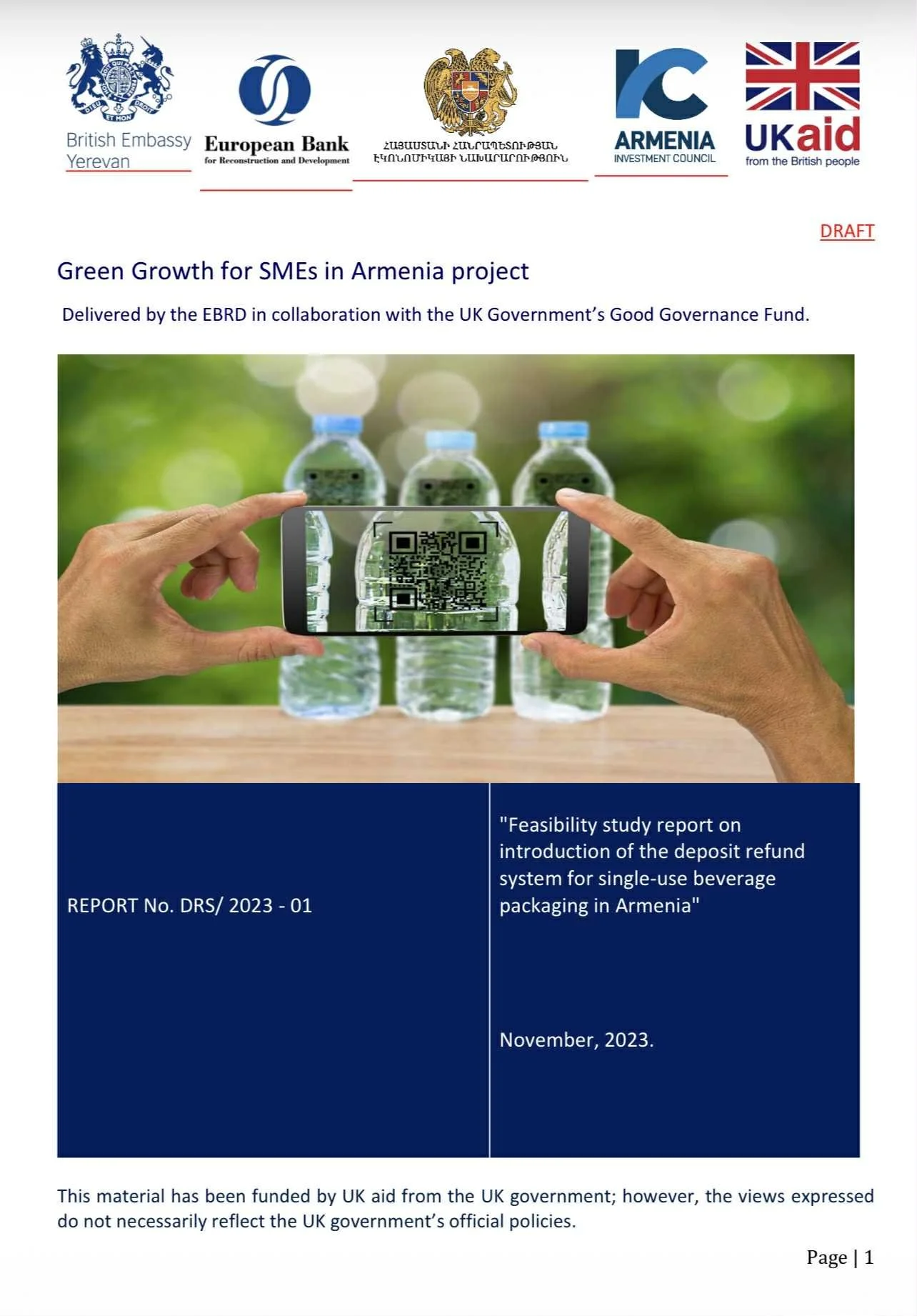Deposit Refund System for Beverage Packaging
Commissioned by the EBRD and implemented with the Ministry of Economy, Environment Group conducted a national feasibility study on introducing a deposit refund system for single-use beverage packaging. A parallel study was completed with the Lithuanian Environmental Agency for glass and plastic containers under the Fund for Development Cooperation and Humanitarian Aid.
According to the 2021-2026 Action Plan of the Government of Armenia, the Government has committed to “elaborate the draft law on making amendments and supplements to the “Law on Garbage Collection and Sanitation.” This is aimed at reducing the volume of waste and establishing the institutional and legal basis for organised collection and processing of waste.
Under the 2017 EU-Armenia Comprehensive and Enhanced Partnership Agreement, Armenia has an obligation to introduce the Extended Producer Responsibility (EPR) system by 2023. The EPR system is a tool widely used in many European countries that brings valuable benefits, such as prolongation of life of produced goods, reducing waste volumes .and increasing recycling capacities. If applied correctly in Armenia, it has the potential to strengthen the recycling of packaging waste and to strengthen the extended producer responsibility system in Armenia. Under the system, the producer/importer, in the initial stage of production/import of the given item, foresees measures preventing the environmental impacts arising in the final stage of that product’s use and bears administrative and financial liability for the elimination of said negative impacts.
The deposit refund system for single-use beverage packing is one of the most efficient instruments of the EPR. A deposit refund system (DRS), also known as deposit-return system, is a surcharge on a product when purchased and a refund when it is returned via a specifically designed system. Packaging usually covered by the DRS includes PET bottles, glass bottles, as well as steel or aluminium drink cans. The DRS helps to reduce the amount of littering, boosts recycling levels for relevant materials and offers the possibility to collect high-quality materials in greater quantities for further reprocessing. In addition, clear labelling and consumer messaging makes it easier for consumers to recycle. Extending the DRS to disposable beverage packaging would be an effective way of enabling the collection of beverage packaging waste from the city and municipal waste stream in a short period of time. The DRS creates an opportunity of achieving the full circularity of packaging materials, including return, reuse and recycling into new products.

